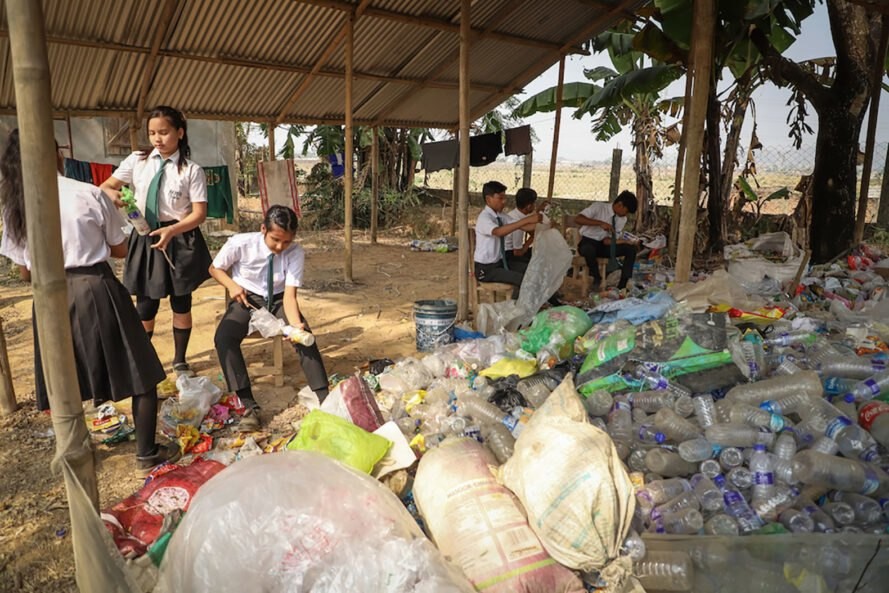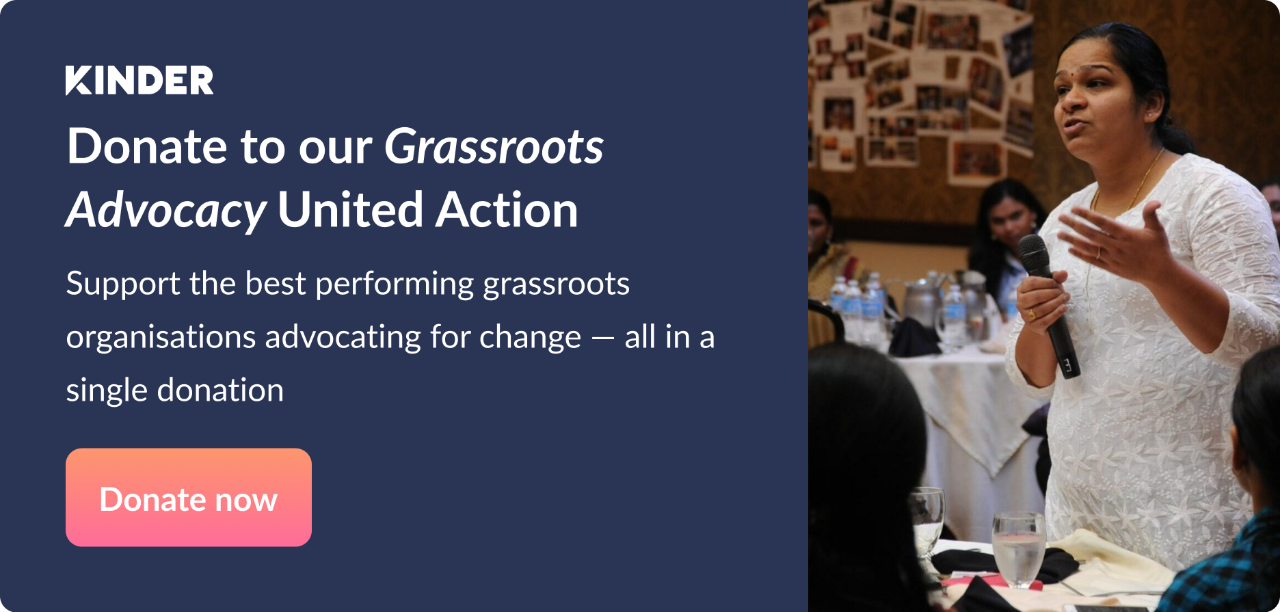Mazin Mukhtar went from New York to Assam, India, in 2013 to work on a school project, where he met Parmita Sarma, his now-wife, and together they founded Akshar School, in 2016. Most of the children in the area worked in the local stone quarries, earning about 3$ a day and this school was founded so they could receive an education.
Burning plastic releases dangerous substances that contribute to various diseases. This was a common practice in Assam’s Pamohi village, where the school is located. The toxic bonfires were not only an environmental danger, but they were also causing children to cough and wheeze during school. Alongside running the school, Mazin and Parmita wanted to put a stop to plastic burning in the village.
Sending a wage-earning member of the family to study was already a hard request for parents, so when Mazin and Parmita asked them to send their plastic waste to school almost none of them agreed.
This was when Mukhtar and Sarma came up with a solution: start charging school fees. But there was a twist: they could pay these fees in cash, or in plastic waste from their homes. This innovative policy quickly had a 100 percent compliance result from parents who also agreed to stop burning plastic.
From 20 initial students, the school now reached 110 children, aged from 4 to 15, and even has a waiting list of 100 determined kids waiting to become the next “ecowarriors”.

Each week, at least 25 units of plastic are collected from each student, that are later transformed into eco-bricks used for construction. Students are not only more aware of how plastic is bad for their health and the environment, but they are also spreading the word when talking to their parents about all the harmful effects, making the knowledge travel outside the school borders.
Alongside providing the village with ecowarriors, Akshar School also offers vocational training in the form of carpentry and electronics workshops and teaching students how to install solar panels.
“We try to teach students to take responsibility for their surroundings and to strive to improve them,” says Sarma.
The Akshar school has a pioneering peer-to-peer learning model to compensate for the lost income from sending children to school instead of work. With this model, older kids tutor the younger ones, and in return, they get paid in a special currency that can be used to buy snacks, clothes, toys and shoes at local shops. As they progress academically, their salary increases.
With this, the school has maintained a “no dropouts” title over the last couple of years and some of the students were even able to buy cellphones from their earnings, something their parents could not afford.
The Akshar model will be implemented in five government schools proving how a local solution that works alongside a community can solve multiple problems at one.
Tha Akshar school is a shining example of grassroots movements at work. Listening to and involving the local community in solving the same people’s urgent problems produces sustainable and effective results. If you, too, would like to support grassroots organisations supporting communities with innovative solutions, you can donate to our Grassroots Advocay United Action below. Your donation will be split between top-performing organisations chosen by our research team.





